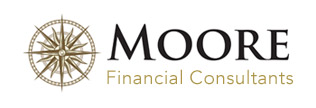Leaving a large wad of cash on deposit today is a complete no-no. Interest rates are dismal, almost half of that interest is lost to tax and rising inflation will eat into the value of your savings.
So if you’ve a wad of money sitting in a low-interest deposit account, you might well be considering moving it to a new home. Stocks and shares may be the last place you want to start given the turbulence which hit world stock markets over the last month.
However, equities aren’t your only option. The Sunday Independent lined up some top investment experts to get their advice on the best places to invest a lump sum of €100,000.
Risk-taker, early 40s
Consider putting three-fifths of your €100,000 in an Irish commercial property fund and the remainder in a high-yield dividend fund, says Rory Nelson, founder of Galway investment advisers Nelson Life.
Irish Life’s Irish Property Fund, which largely invests in Irish commercial properties, gets the thumbs up from Mr Nelson.
“Returns and yields from this sector are very strong,” he says. “The strong growth is expected to continue in rental and recover from distressed levels.
“However, there are risks to this continued growth including domestic and international growth and sustainability of the appetite from investors.”
For the dividend fund, Mr Nelson tips Setanta Asset Management’s Dividend Fund. “Dividends have played an important role in the cumulative total return of equities over the past century,” he says. Remember, the Property Fund and Dividend Fund are both high-risk, so you could lose money after investing.
Buying an apartment before the end of the year – with a view to renting it out – would be a good investment move, according to Alan Morton, managing director of the financial advisers, Moneywise.
In doing so, you would be eligible for the capital gains tax (CGT) exemption where you do not have to pay any CGT on profits made from the sale of a property – as long as you bought that property between December 7, 2011 and the end of 2014 and held onto that property for seven years.
“Of course the thrills and spills of landlord duties would need to be part of the deal, unless you’re willing to pay a letting agent,” says Mr Morton.
Choose your location wisely should you decide to go down this route – in doing so, you should be able to tap into today’s strong rental market.
Remember that the rental market may not be as strong in a few years as it is today. Make sure too that you can afford – or charge rent to reflect – the cost of letting an apartment as well as the massive tax bill you’re likely to face on your rental income.
An investor in their early 40s should have time to recover from the ups and downs on world markets over the years – so equities are worth considering, despite the recent slides.
“A younger investor with a greater risk appetite can look to drip-feed monies into a carefully chosen basket of equity funds,” says Mr Morton.
“The drip-feeding strategy helps lower the risk of short-term volatility impacting on valuations in the early years.”
It could be worth your while putting money into emerging market shares, according to Ross Curran, managing director of the Galway financial advisers, Curran Financial Services. “There seems to be increasing consensus that investors’ exposure to emerging markets is too low when you look at how significant the markets in the likes of China, India and Brazil are these days,” he says. “Most investment portfolios will have less than 5pc in this asset class, if even, but many would say that this is ultimately based on prejudice rather than any real fundamental rationale. Many advisors are saying that this needs to be changed.”
Choose your emerging market shares carefully, as they can be very volatile.
Cautious investor, mid-50s
The Swiss Market Index (Series 2) is a structured deposit account which is worth considering, according to Mr Nelson. It invests your money in the Swiss Market Index.
“The index is made up of strong, visible global brands such as Nestle, Novartis, and UBS and there is the opportunity for investment growth backed with capital protection,” he says.
You can choose to invest your money in the ‘Secure’ version of this account where you get a full capital guarantee – or in the ‘Growth’ version, where you have the chance of making a higher return but the capital guarantee is only 90pc. Be sure you understand the costs of the capital guarantee before investing in this product. Any returns made are liable for Deposit Interest Retention Tax (the tax on saving interest).
Exchange-traded receivables (ETRs) are an alternative to deposits which can be suitable for cautious investors, according to Mr Curran. With ETRs, you are essentially buying a company’s invoices for a certain amount of time. You can earn almost 4pc interest a year. You could lose money if the company or companies whose invoices you have bought don’t settle their bills – however, such defaults are usually covered by an insurer.
Although equities may not be a good idea for investors in their 50s, a well-chosen investment fund could be a good bet.
Standard Life’s Global Absolute Return Strategies (GARS) fund or New Ireland’s iFunds 3 – a low- to medium-risk fund, are two funds worth considering, according to Mr Morton. “These investment funds aim to generate positive investment returns in most market conditions,” he says. “Commercial property funds are attracting significant in-flows of new investment and might also be an option.”
As I’m sure you realise, €100,000 is a lot of money – so it is worthwhile getting independent financial advice before you invest it anywhere. Good advice is usually not free, but it will stop you pouring your money down the drain.
Sunday Indo Business


